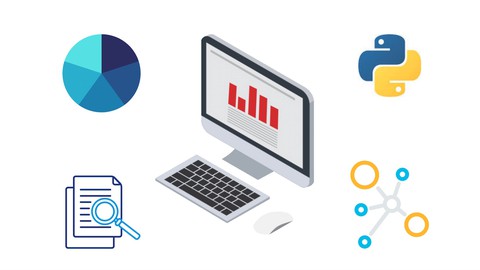Python Machine Learning Bootcamp


Price: 199.99$
Machine learning is continuously growing in popularity, and for good reason. Companies that are able to make proper use of machine learning can solve complex problems that otherwise proved very difficult with standard software development. However, building good machine learning models is not always easy, and it’s very important to have a solid foundation so that if/when you encounter problems with models on the job, you understand what steps to take to fix them. That’s why this course focuses on always introducing every model that we cover first with the theoretical background of how the model works, so that you can build a proper intuition around its behaviour. Then we’ll have the practical component, where we’ll implement the machine learning model and use it on actual data. This way you gain both hands-on, as well as a solid theoretical foundation, of how the different machine learning models work, and you’ll be able to use this knowledge to better chose and fix models, depending on the situation. In this course we’ll cover many different types of machine learning aspects. We’ll start with going through a sample machine learning project from idea to developing a final working model. We’ll learn many important techniques around data preparation, cleaning, feature engineering, optimizaiton and learning techniques, and much more. Once we’ve gone through the whole machine learning project we’ll then dive deeper into several different areas of machine learning, to better understand each task, and how each of the models we can use to solve these tasks work, and then also using each model and understanding how we can tune all the parameters we learned about in the theory components. These different areas that we’ll dive deeper in to are:- Classification- Regression- Ensembles- Dimensionality Reduction- Unsupervised Learning At the end of this course you should have a solid foundation of machine learning knowledge. You’ll be able to build out machine learning solutions to different types of problems you’ll come across, and be ready to start applying machine learning on the job or in technical interviews.






